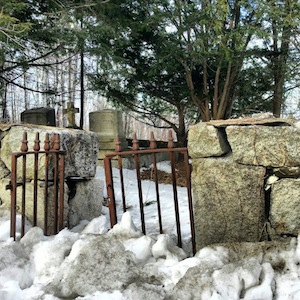photo by Sandra Dodd
Saturday, January 12, 2019
People are different
photo by Sandra Dodd
Friday, June 26, 2020
From the inside...

Debbie Regan wrote:
"From the outside, unschooling may look like no chores, no bedtimes, no education, no discipline, no structure, no limits, etc. But from the inside, it's about learning, relationships, living with real parameters, partnership, navigating turbulence, making connections, joy, curiosity, focus, enthusiasm, options, following trails, fun, growing understanding, opening doors..."
photo by Kathryn Robles
__
Thursday, September 27, 2012
Learn to use "learn"

If people learn to use "learn" instead of "teach," it helps them move to another angle, to see things through a different lens.
Some people see experienced unschoolers ("experienced" meaning in this context people who have done it well and effortlessly for years, who aren't afraid anymore, who have seen inspiring results) mention classes, and they think "Ah, well if the experienced unschoolers' kids take classes, then classes are good/necessary/no problem."
But if beginners don't go through a phase in which they REALLY focus on seeing learning outside of academic formalities, they will not be able to see around academics. If you turn away from the academics and truly, really, calmly and fully believe that there is a world that doesn't revolve around or even require or even benefit from academic traditions, *then* after a while you can see academics (research into education, or classes, or college) from another perspective.
photo by Sandra Dodd
__
Friday, March 30, 2012
The world changes slowly

SandraDodd.com/thoughts
photo by Sandra Dodd; a hot air balloon visible out our back gate
Saturday, November 30, 2013
A moment of nothing much
Deschooling doesn't work until you let go of structure. Early days unschooling is about learning how to see learning in all things and if you are still looking to the structure of curricula it will be very, very difficult to grasp the fundamentals of unschooling. Having go-to ideas of things to do or engagements to offer is a good thing, but having those things be about education or a passing on of pieces of specific knowledge it won't help you to see the glorious world of unschooling. Those things are best if they are just kind of a fun thing to do in a moment of nothing much going on. Learning will happen.
photo by Sandra Dodd
___
Sunday, February 7, 2016
From the inside
photo by Ve Lacerda
Sunday, March 1, 2020
Bright and conversant
It has been a long time since I worried about whether they would grow up whole and functional. They were whole, functional, bright and conversant all along. They surprise and impress older friends, co-workers and classmates (when those temporary relationships do arise) with their energy and joy.

2006, from "To Be Fascinating at Cocktail Parties"
photo by Sandra Dodd
__
Monday, August 14, 2023
Blossoms
photo by Gail Higgins
Saturday, January 7, 2012
Learning not to control
photo by Sandra Dodd
__
Friday, October 9, 2020
Let life entertain you
It's not that unschoolers ignore the difference between entertainment and education. It's that we come to see that it's a false division.
For educators, entertainment is a sugar coating that can be put on the important stuff to make it easier to get it in.
For unschoolers, that division doesn't make sense. For unschoolers the division is interested in and not (yet) interested in.
Engagement, joy, interest, fascination are all indications a child is making connections between ideas. Unschoolers come to realize that the connections are not just the important part of learning but the only real learning.
photo by Elaine Santana
Tuesday, June 5, 2018
Live here and now

[Historically...]
Nobody kept their kids home for 18 or 20 years just discussing life with them, hanging out, playing games.
We probably wouldn't be either, if it weren't that we're biding time until the clock runs out on compulsory education.
So even as we unschool now (and I'm not talking about people with toddlers who aspire to become unschoolers over the years), it's in reaction to the culture around us, it's finding a way to live in an alternative fashion within this culture.
People can't actually leave the planet and can't actually go back in time. The only place we can live is the here and now.
photo by Ester Siroky
__
P.S. A few people have left the planet for a while, but they don't get very far, and no unschooling family has yet done so.
Tuesday, April 26, 2011
Mastering ideas about learning
In Romance language (Italian, French, Spanish and so on) our "teacher" translates to something along the lines of "maestro," a word we have too in regards to music direction. And we have the English cognate "master" which is more currently left in "master of arts" and other college-degree titles. Once that meant a person was qualified to teach at the university level. That meaning is gone in the U.S., pretty much.
Considering the word family from which "maestro" comes (and not knowing all its connotations in other languages), the English verb "to master" means to learn. It means to become accomplished in the doing of something. Whether mastering horseback riding or blacksmithing or knowing and controlling one's own emotions, it's not someone else does to you or for you.
So for any translators or bilinguals reading here, have sympathy for English speakers who can't get to natural learning without disentangling all the graspy words and ideas about teaching and education and their implications that learning is passive and teaching must be done to a person.
photo by Sandra Dodd
__
Tuesday, August 14, 2018
Actually seeing it
It would help to be in contact with other unschoolers at playgroups or on the internet, and to meet unschooling families with children of various ages. It's difficult to imagine it, so it's easier to actually see it.
 |
This new way of seeing the world involves seeing music in history, and science in geography, and art in math, and not talking about it. The last part is the hardest part.
I don't mean never talk about it. I mean don't say "Oooh, look! Science!" Once a person knows science is everywhere, and everything is connected to everything else, there will be nothing to talk about except the topic at hand, or where they're going or what they're seeing. The learning will happen without being labeled and sorted out. The labeling and sorting can prevent learning.
photo by Ester Siroky
____
Saturday, March 31, 2012
Surprising changes

When my firstborn son was four and we decided not to enroll him in kindergarten that fall, I thought I could foresee the future. I knew unschoolers. I knew alternative education. I knew it could be really fun, and good. What happened over the next nineteen years surprised me. Because of unschooling, I changed. My husband changed. The way we interacted with the world and other people changed, all for the better. Our relationships with all three of our children surpassed any of our imaginings.
The photo is by David Jio, of a light too bright to see directly, and the more-detailed shadow/projection of what it really looks like. That light is has been in our front room for years. Sometimes a very intense thing can hardly be perceived directly, but the effects and afterimages can be examined.
__
Wednesday, January 25, 2017
Fairly seamless
photo by Sadie Bugni
__
P.S. Usually if the words are mine I don't credit so overtly, but this is an odd statement and so I figured I'd better own up to it in a more personal way.
Tuesday, February 21, 2017
Whole and healthy
photo by Sandra Dodd
__
Thursday, April 18, 2013
Any gaps?

photo by Colleen Prieto
Saturday, November 16, 2013
Descriptive and unlimited
| I think that an unschooler's checklist should look more like the five senses and past/future than like "science, history, language, math, maybe-music-art-physical education." Because that model is prescriptive and limiting. And the other is descriptive and unlimited. |  |
photo by Sandra Dodd








